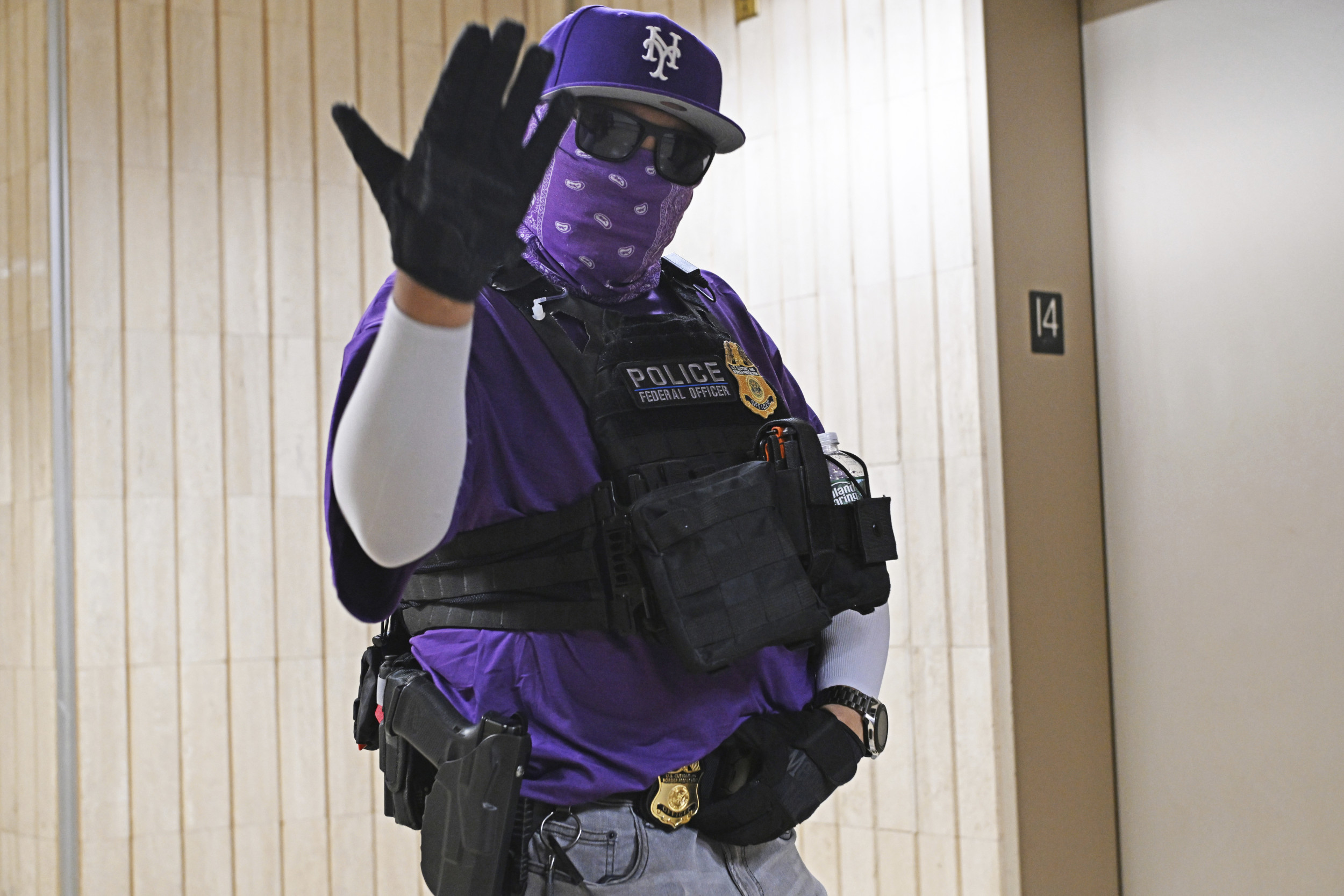Can a Judge Really Stop Trump's Deportations?

Published: 2025-09-16 11:05:28 | Category: policy GNEWS Search
This article discusses a recent ruling by a federal judge regarding the Trump administration's transfer of five West African men to Ghana, despite their potential risk of torture if returned to their home countries. The case raises significant concerns about U.S. immigration policy, the limits of judicial intervention, and America's adherence to international human rights obligations.
Last updated: 20 October 2023 (BST)
Key Takeaways
- Federal Judge Tanya Chutkan ruled she cannot stop the transfer of five West African men to Ghana.
- The men face potential torture or persecution if returned to Nigeria and The Gambia.
- The case highlights the Trump administration's reliance on third-country transfers to bypass U.S. court protections.
- There are questions regarding compliance with the Convention Against Torture and the implications for U.S. immigration policy.
- The deportation tactics have sparked legal disputes and raised concerns about human rights violations.
The Ruling and Its Implications
On 15 September 2025, U.S. District Judge Tanya Chutkan expressed her frustration over the limited judicial power to intervene in the deportation of five men from Nigeria and The Gambia. She stated her "hands are tied," acknowledging the alarming circumstances surrounding these removals. The judge's ruling points to a significant legal issue: the intersection of immigration enforcement and international human rights obligations.
Background on the Case
The five men had previously been granted protection under U.S. immigration law after judges determined they were likely to face torture or death upon return to their home nations. However, on 5 September, they were taken from detention facilities and transferred to Ghana on a U.S. military flight. Reports suggest they were restrained in straitjackets for extended periods during the journey.
Conditions in Ghana
Upon arrival, the men were placed in Dema Camp, a facility under armed guard. Their lawyers allege that Ghanaian officials indicated a plan to deport them back to Nigeria and The Gambia, contradicting the protections they had been granted in U.S. courts. This raises serious concerns about the validity of diplomatic assurances provided by the Trump administration that claimed the men would not be sent to countries where torture awaited them.
Legal Framework and Concerns
The Convention Against Torture, an international treaty to which the U.S. is a signatory, obliges states to prevent the return of individuals to countries where they face a real risk of torture. The ruling indicates a troubling trend: the U.S. government's actions may be circumventing these obligations through third-country transfers. Judge Chutkan's acknowledgment that her court lacks jurisdiction to intervene raises critical questions about the power dynamics between judicial and executive branches in immigration matters.
Trump Administration's Stance
The Trump administration has defended its actions, stating that diplomatic assurances were secured from Ghana regarding the treatment of deportees. However, Judge Chutkan highlighted inconsistencies in these assurances, noting that Ghana's actions appeared to contravene the commitments made. The U.S. government's stance has been met with increasing scrutiny, particularly as data suggests a rise in voluntary self-deportations, driven by aggressive immigration enforcement tactics.
Responses from Ghana
The Ghanaian government has rejected claims that it is merely endorsing U.S. immigration policy. Officials have stated that accepting deportees from the U.S. is a matter of regional solidarity. Foreign Minister Samuel Okudzeto Ablakwa emphasised that their decision was not financially motivated but rather a humanitarian response to the plight of fellow West Africans. However, the conflicting narratives from the Ghanaian government and the legal representatives of the deported men raise concerns about transparency and accountability.
Broader Context of Deportation Practices
This case is not an isolated incident. It is part of a larger pattern of deportation tactics employed by the Trump administration, which has faced multiple legal challenges. Courts have intervened in various cases, particularly involving vulnerable populations such as children and those at risk of persecution based on sexual orientation or political beliefs. The ongoing legal battles emphasise the complexities and ethical dilemmas surrounding U.S. immigration policy.
What Lies Ahead?
The immediate future for the deported men remains uncertain. While their lawyers may appeal Judge Chutkan's ruling, her determination that the court lacks jurisdiction limits the likelihood of a successful intervention. One of the plaintiffs has already been repatriated to The Gambia, and the remaining men face imminent removal from Ghana, placing their fate in the hands of the Ghanaian government.
The Potential for Diplomatic Fallout
As the situation evolves, it could lead to diplomatic tensions between the U.S. and Ghana, especially given the concerns raised by opposition leaders in Ghana regarding the legality of accepting deportees. The broader implications of this case on U.S. immigration policy and international human rights standards may prompt further scrutiny and debate in both domestic and international forums.
Conclusion
This case serves as a significant touchpoint in the ongoing discourse surrounding U.S. immigration policy and human rights. As legal challenges continue and the international community watches closely, the outcomes will not only affect the lives of the individuals involved but may also set important precedents for the future of immigration enforcement in the United States. How the U.S. navigates its commitments to human rights in the context of immigration will be a defining issue in the years to come.
FAQs
What are the main concerns regarding the deportation of the five men to Ghana?
The main concerns include the risk of torture or persecution they face if returned to Nigeria or The Gambia, the legality of their transfer under international law, and the implications for U.S. immigration policy.
What did Judge Tanya Chutkan say about her ability to intervene in the deportation?
Judge Chutkan stated that her court lacks jurisdiction to stop the deportations, expressing alarm over the circumstances but acknowledging that she could not compel action from the executive branch or Ghana's government.
How has the Trump administration justified the transfers?
The Trump administration has claimed to have secured diplomatic assurances from Ghana that the men would not face torture upon return, although this has been disputed in court.
What are the potential consequences for U.S. immigration policy?
The case highlights the dangers of using third-country transfers to sidestep legal protections, potentially setting a precedent that undermines U.S. commitments to human rights and international treaties.
What might happen next for the deported men?
The legal team may appeal the ruling, but the likelihood of success is minimal given the jurisdictional limitations. Their fate largely depends on the actions of the Ghanaian government.



